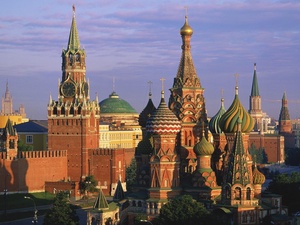
Court decision puts Norway on the hook for massive CO₂ Storage build-out
A ruling by the European Free Trade Association Court that Norway’s continental shelf falls under the European Economic Area Agreement could dramatic...
News

Publish date: June 30, 2021
News
Russia’s unique vulnerability to climate change has been confirmed this summer by a record-breaking heatwave that has lingered brutally since May.
Daily temperatures in St. Petersburg rose to a record-breaking 34 degrees Celsius last week as the city faced the hottest temperatures it’s seen since 1998.
Temperatures in Moscow broke their all-time June record last Wednesday when they reached 34.8 degrees Celsius The previous record was 34.7 degrees Celsius recorded in 1901, the Associated Press reported.
And in Siberia on Sunday, the land surface temperature, which measures how hot the surface feels when you touch it, exceeded 35 degrees Celsius, with peaks of 48 degrees Celsius near Verkhoyansk, and 37 degrees Celsius in Saskylah, both of which are north of the Arctic Circle.
In Saskylah, an air temperature, which is what people actually feel when they walk outside, of 31.9 degrees Celsius was recorded, the highest value since 1936.
Overall, Russia has recorded the highest average May temperatures in its 130-year recorded history in the past two years, the country’s weather monitor Rosgidromet has said.
While places like St. Petersburg saw record precipitation levels, the heatwave was accompanied by drought around the Volga river, Ural mountains and western Siberia, creating conditions for wildfires. Last year’s spring heatwave contributed to record-breaking wildfires in Siberia.
“The long-term trend is clear in the month of June: Temperatures are rising across Siberia due to the influence of human-caused climate change,” Dr. Zachary Michael Labe, a postdoctoral researcher climate scientist at Colorado State University, told ABC news in the US. “This will continue to dramatically have far-reaching impacts to marine and terrestrial ecosystems of the Arctic.”
“The persistence of the warmth is what is particularly striking to me — both for this summer and in nearly all of 2020,” Labe added. “This is also related to the record-low sea ice ongoing along the coastline of Siberia.”
While studies show that Russia is warming two and a half times faster than the rest of the planet, Moscow, which banks on heavily on fossil fuel exports, has been slow to respond.
It was only last month – six years after the world agreed to the Paris Climate Accord – that Russia’s parliament approved legislation that would begin tracking industrial greenhouse gas emissions. This effort, however, has been criticized for failing to spell out any penalties for excesses. Of further worry to international climate experts, the legislation asserts that Russia’s vast forests will absorb any emissions overruns while failing to spur initiatives that would stop carbon dioxide from reaching the atmosphere in the first place.
In the meantime, Alexander Kozlov, Russia’s minister of natural resources, has warned that fully 40% of buildings in the country’s high north are in danger of crumbling due to melting permafrost driven by climate change. The frozen mixture of ice and soil covers about 65% of Russia’s total landmass, and thaws brought on by rising Arctic temperatures are causing roads and railways to buckle and endangering Russia’s vast web of oil pipelines, he said.
In total, Kozlov said the Russian economy stands to lose more than $67 billion by 2050 thanks to melting permafrost due to climate change.
These unstable foundations are already causing accidents According to a study by Russia’s Ministry for the Development of the Far East and the Arctic, the bureaucracy charged with overseeing Arctic expansion, around 23% of technical failures and 29% of losses in fossil fuel extraction are caused by permafrost degradation.
The study also reached the startling conclusion that some 70 percent of all current Arctic infrastructure is at potential risk. That includes 45 % of all of Russia’s oil and gas projects, 36,000 buildings, and dozens of airports, both civilian and military, are in danger.

A ruling by the European Free Trade Association Court that Norway’s continental shelf falls under the European Economic Area Agreement could dramatic...

Bellona held a seminar on countering Russian disinformation in the Arctic at the Arctic Frontiers international conference in Norway

Our December Nuclear Digest, reported by Bellona’s Environmental Transparency Center, is out now. Here’s a quick taste of three nuclear issues arisin...

Bellona has launched the Oslofjord Kelp Park, a pilot kelp cultivation facility outside Slemmestad, about 30 kilometers southwest of Oslo, aimed at r...